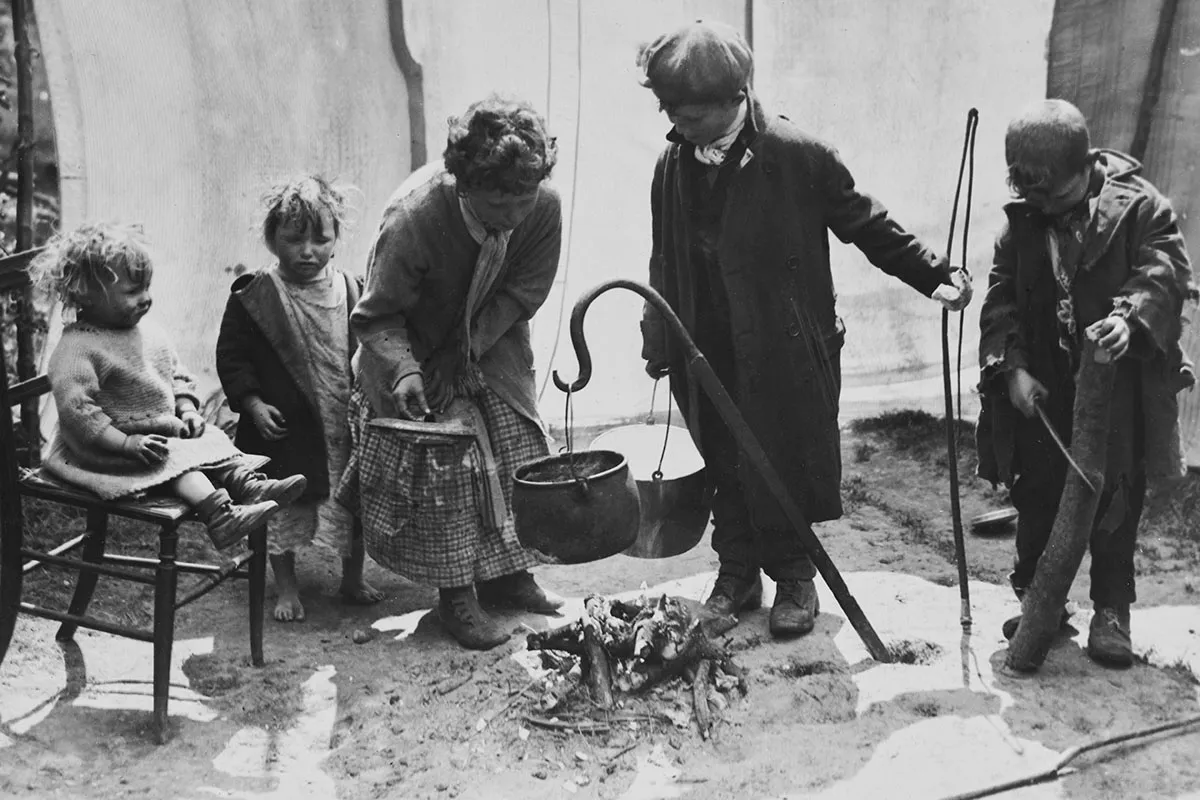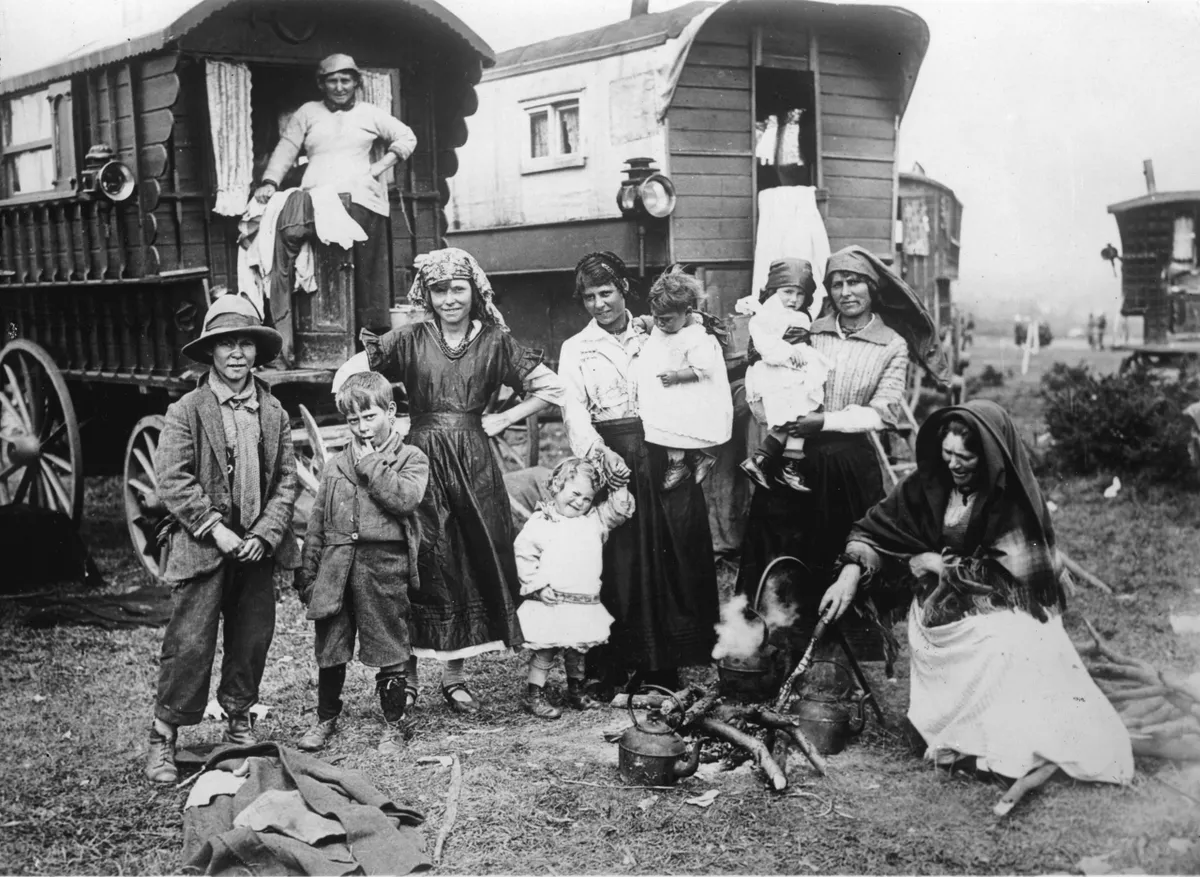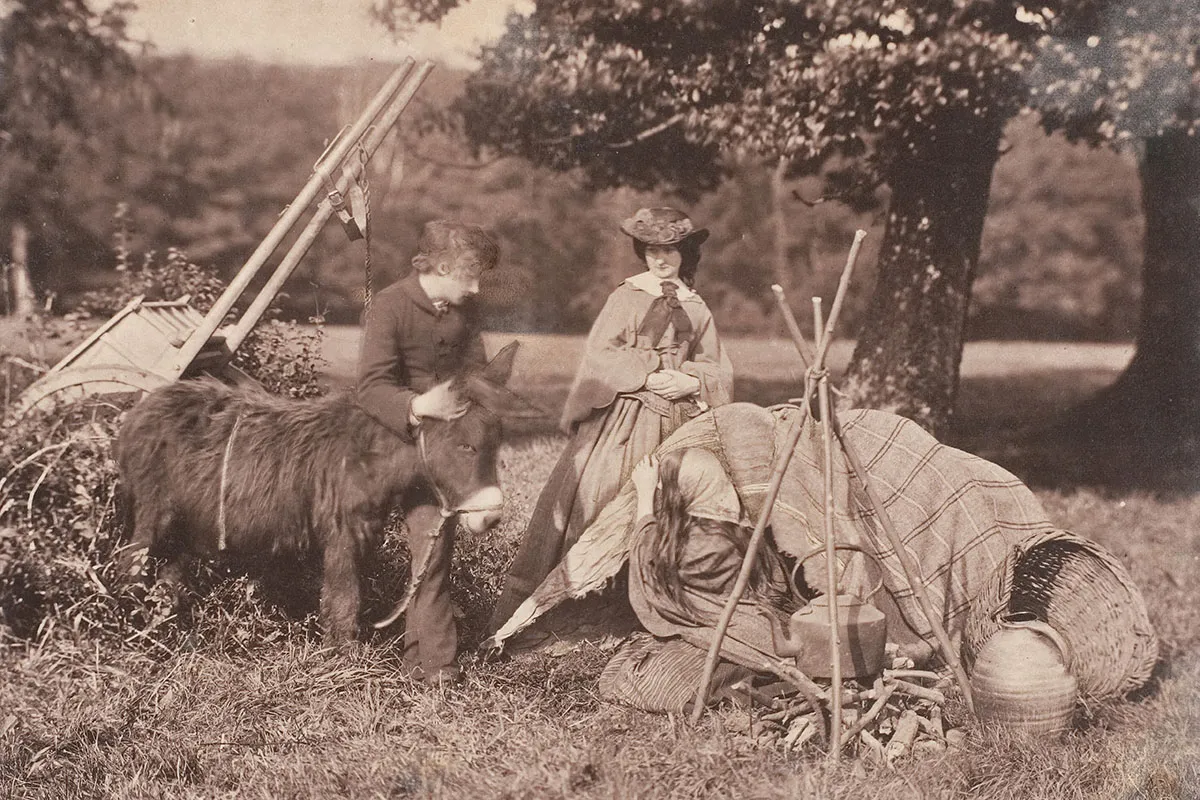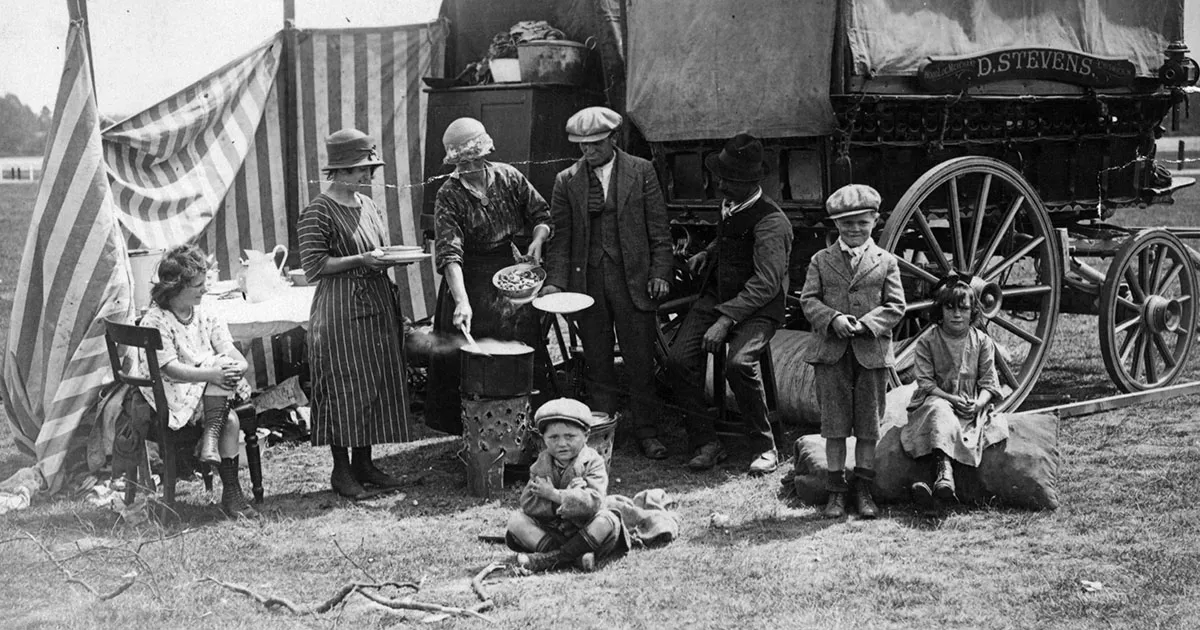As more records go online, it has never been easier to find out if you have 'Gypsy blood' running in your veins. The definitions of Gypsy, Traveller or Romani/Romany ancestors cross all sorts of ethnic and non-ethnic boundaries, encompassing communities that have a nomadic culture, history or lifestyle. Tracing Gypsy family history can be hard because of the lack of written records. However, some surnames were historically more common in Gypsy communities. If you have one of these surnames below, or you find them in your family tree, you may have Gypsy ancestry.
You might also like:
- Explore 100 cool real British last names
- Why are there so few Welsh surnames, and what are the most common?
- The best DNA test kits for 2024 tried and tested
What are Gypsy surnames?
All of the following are common Gypsy surnames:
| Boss | Boswell |
| Buckland | Chilcott |
| Codona | Cooper |
| Doe | Lee |
| Gray or Grey | Harrison |
| Hearn | Heron |
| Hodgkins | Holland |
| Lee | Lovell |
| Loveridge | Royles |
| Ryalls | Scamp |
| Smith | Stevens or Stephens |
| Wood | Young |
Common Gypsy girls names
Gypsies sometimes gave their children unusual first names, which you might find in your family history records. However, you are just as likely to find that your Gypsy ancestors had perfectly common first names such as Mary, Esther, Joseph or Henry. You might find any of the following as Gypsy girl's names:
| Anselina | Athalia |
| Britannia | Cinderella |
| Clementina | Dotia |
| Fairnette | Freedom |
| Gentilia | Lementeni |
| Mizelli | Ocean |
| Reservoir | Sabina |
| Sinfai | Tryphena |
| Unity | Vancy |
Common Gypsy boys names
You may find any of the following as Gypsy boy's names:
| Amberline | Belcher |
| Dangerfield | Elijah |
| Ezekial | Gilderoy |
| Goliath | Hezekiah |
| Liberty | Mackensie |
| Major | Nehemiah |
| Nelson | Neptune |
| Noah | Reuben |
| Sampson | Shadrack |
| Shady | Silvanus |
| Valentine | Vandlo |

Where do Gypsies come from?
Romani Gypsies are thought to have arrived in Britain from the northern Indian sub-continent around 1500. The first reference to Gypsies in England occurs in 1514. The term ‘Gypsy’ derives from the fact that they were thought to have come from Egypt.
Irish Travellers are a separate cultural group who can be traced back to 12th century Ireland and started migrating to Britain in the early 19th century. There are other groups of Travellers, such as English, Scottish and Welsh Travellers. Travelling showmen, and more recently New Age Travellers, are also groups of people who lived and live on the road.
Census records for Gypsy ancestry
In census records, Gypsies may have recorded unusual residences such as 'Under the River Bridge', 'Bender' (a tent made from hazel twigs covered with a canvas) or 'Tent on Common'. To search for traveller families in the 1921 census for England and Wales, try just surname and 'No fixed abode' or 'No fixed address' in the address box in the advanced search as first names are often wrongly recorded or transcribed.
Another clue for Gypsy ancestry is all the children in the family being born in different places. You may also see common traveller occupations such as hawker, pedlar, basket maker, mat maker, beehive maker, chair bottomer, sieve bottomer, tinker, tinman, razor grinder, marine store dealer, peg maker, umbrella mender, brushmaker, knife grinder, dealer, chimney sweep, horse dealer or just ‘Egyptian’.

Regional sources for Gypsy information
English Romanies and English, Scottish, Welsh and Irish Travellers moved amongst their own people and gathered at traditional stopping places.
Despite the term Traveller, many remained local to a particular area: Doncaster, Leeds, Cardiff, west London. There are also historical rural concentrations of Gypsies and Travellers in rich agricultural regions like Lincolnshire, Cambridgeshire, Kent, Somerset and Worcestershire’s Vale of Evesham.
Local Gypsy organisations such as Leeds Gate Gypsy and Traveller Exchange can be a useful source of information. The Travellers Times also provides articles about regional communities, both current and past.
University collections of Gypsy history
Liverpool University Library houses the archive of the Gypsy Lore Society. Their journals can also be viewed on the Hathi Trust database.
The other principle collection of Gypsy, Traveller and Roma records in the UK is at the University of Leeds. The University of Reading’s Museum of English Rural Life (MERL) holds the papers of experienced Gypsy, Roma and Traveller researcher Robert Michael Dawson. If you are looking for travelling showmen, try the National Fairground and Circus Archive at the University of Sheffield.

Old Gypsy photographs
Not only were Gypsy encampments a popular subject for photographers, but family photographs were popular with Roma, Traveller and Gypsy families.
Pinterest hosts a number of images including personal ones uploaded by those researching their Romany roots, such as this one from Chris Shields. Local archives may also hold collections either left by notable Traveller families or by photographers who often romanticised the Gypsy lifestyle. MERL also has photographs, not just in the Robert Dawson collection mentioned above, but also the JE Manners collection. The Romany and Traveller Family History Society also has a collection of old photographs.
Other websites for Gypsy family history
The Romany and Traveller Family History Society provides one of the richest and most specialised resources for anyone exploring their Gypsy roots. A small annual subscription brings you their quarterly journal Romany Routes, with advice and information on British Romani, Traveller and fairground families.
In addition, don’t miss Romani, the website of Gary Stanley. It began with Gary’s research into his Romani roots, which ballooned from simple genealogy into a one-community heritage project. Gary (who you can follow on Twitter) hunts down Romani ancestors, carefully logging and recording anything of interest that crops up in his research, before sharing it.
The net is wide, tracking and recording any mention of Romani Gypsy families and individuals between 1500 and 1900, in the UK and the USA, normally from census returns, old newspapers or birth, marriage and death records. There are also miscellaneous items, such as entries from Queen Victoria’s journals about the Cooper Romany Gypsies encamped near Claremont in Esher, Surrey.

Can DNA tests reveal Roma, Traveller or Gypsy heritage?
There are a number of projects looking at whether there are distinctive genetic traits that have been passed down by Roma, Traveller and Gypsy families. Most of the projects look at Y-DNA and mitochondrial DNA test results using FamilyTreeDNA tests. Projects include the English Traveller Project, the Celtic Traveller DNA Project and RomanyDNA. Autosomal DNA tests from companies such as Ancestry offer ethnicity estimates but these are unreliable for calculating any inheritance from these communities. However, they may connect you to families with surnames associated with these communities that may help you towards uncovering a documentary connection.
Celebrities with Gypsy heritage
There have been a few celebrities on Who Do You Think You Are? who have uncovered a connection to traveller, fairground or Romani families. The artist Tracey Emin was delighted to discover her connection to the Hodgkins family of 'trampers' in her episode. David Walliams and Larry Lamb also found they had travelling fairground connections. Other celebrities with Romani heritage include Michael Caine, Bob Hoskins and Charlie Chaplin.